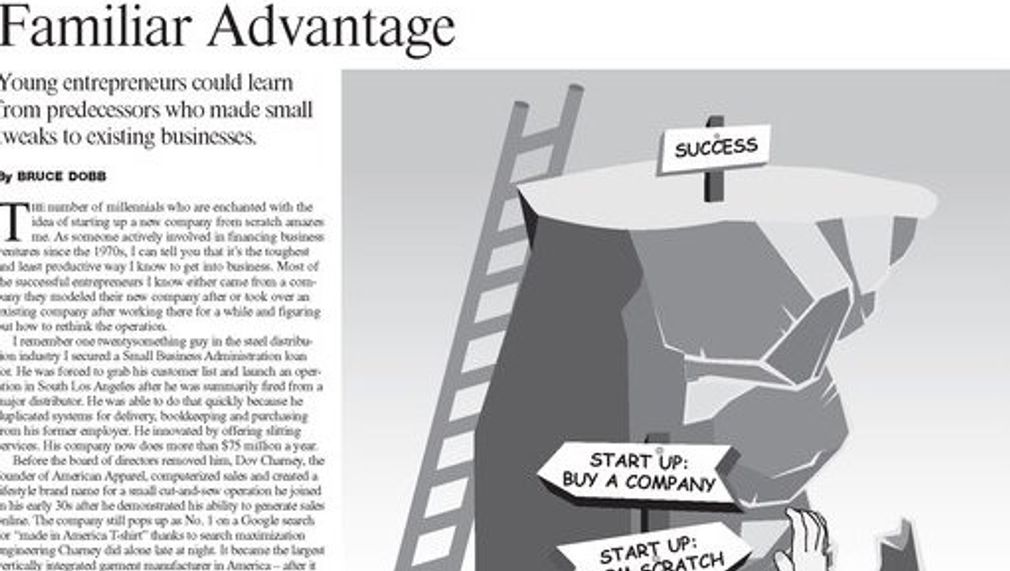Diversifying LA’s manufacturing ownership by empowering workers to buy their company
The project will help key employees and related parties buy their company and in the process save jobs, promote investment, and help businesses get back into growth mode.

How do you plan to use these resources to make change?
Expand a pilot or a program
Engage economic development providers nationwide in this practice
How will your proposal improve the following CREATE metrics?
Concentration of manufacturing activity in LA
Jobs per capita
Minority- and women-owned firms
Gini coefficient
Venture capital investment
Describe in greater detail how you will make LA the best place to CREATE.
LA 2050 seeks to “Create in LA means of fostering entrepreneurship, cultural diversity, and inclusivity.” Our proposal does this in the following ways:
We will identify 20 small companies with long-term employees (3 years or more) who seek to own the company they work for. The overwhelming majority of minority workers in LA’s private sector work for small businesses, (companies with 500 or fewer employees). Yet, less than 33% of these companies are owned by people of color; our proposal seeks to address this issue by encouraging entrepreneurship in the workplace of these smaller companies
Proceeds from our 2050 grant would be used to create a transition plan for employee groups that includes a business valuation for negotiating the business sale, a training plan that identifies employee skills needed and drafting of a ‘letter of intent’ to preclude the business from being sold during a period of due diligence.
We will enroll interested employees in entrepreneurial training designed to prepare them for eventual company ownership. By including blue collar workers in the ‘class’ of potential business owners and buyers, our proposal seeks to address income inequality and expand the economic horizons of employees it touches
By extending ownership opportunities to employees who would otherwise not have the chance to own their own company, our initiative seeks to make LA a more inclusive environment that encourages entrepreneurship, risk taking and creativity. The overwhelming majority of blue collar, manufacturing jobs are in the areas of LA with the highest concentration of low-income residents and people of color yet the ownership of these companies is still predominantly white and live outside of the communities where the companies are located. . “Seventy five percent of all small business is owned by folks over 55 years of age and every 7 seconds a Boomer is turning 65 and will do so for the next 15 years.” Transitioning these companies to existing management/employees groups will revitalize the business, realign their outlook with more contemporary racial and ethnic realities and extend the company’s useful life.
Recycling an existing manufacturing company with its years of goodwill, customer base and trade credit in-tack is easier than starting a new one. Bank financing is more readily available due to a track record of earnings or past history that demonstrates repayment ability. Long-term employees understand their business.
Please explain how you will evaluate your work.
We evaluate our work in the method that traditional economic development practitioners do; by the numbers. We will use the following matrix:
·Jobs saved and/or created
· Number of entrepreneurial candidates readied to take over a company
·Number of companies identified as potential transfer of ownership candidates
·Total dollar amount of investment
·Total number of loans secured and dollar amount
·Total number of businesses where ownership transferred to employees.
We will also have a qualitative evaluation of our work with focus group studies using our partners as members. These qualitative focus groups will examine such questions as to our effectiveness in following areas: leads generated, quality of referral we make to them for trainees and impact in their service area of our work transitioning companies.
How can the LA2050 community and other stakeholders help your proposal succeed
Money (financial capital)
Volunteers/staff (human capital)
Publicity/awareness (social capital)
Education/training
Technical infrastructure (computers, etc.)
Community outreach
Network/relationship support
Quality improvement research